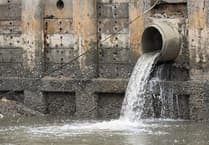Editor,
Regarding the NFU’s opposition to introducing beavers into the renowned Dyfi valley Biosffer, UNESCO Cymru, (Concerns raised over plans to re-introduce beavers, Cambrian News, 17 Feb.) I hesitate to put myself in their cross-hairs but I’d like to suggest the NFU Cymru needs to take a step back and explore the future. Admittedly, that’s easier said than done when some farmers are so challenged and face uncertainty. Brexit cannot have helped the Welsh Government’s potential response to farming’s needs when the UK government’s promise to make good EU funding amounts to about one seventh of that former funding.
Yet, the expression of climate change, if anything, is becoming more rampant. There is far more energy in the atmosphere. By the 2030s, there will be about seven per cent more moisture held in the North European atmosphere than there was before 2000. Extreme events are, and will become, far more prevalent, erratic and impactful.
Farming in Wales needs to become far more diversified due to climate and for economic reasons, including too if Wales wishes to become anywhere near self-sufficient. Currently, it produces only a tiny fraction of its needs in fruit and vegetables. The sheep population is almost three times what it was at the end of the Second World War.
It isn’t just a lean towards horticulture and regenerative farming principles, there’s also far more potential in farming for eco-tourism and encouraging quality, long-stay vacations whilst curtailing caravan numbers. But as a reader correctly wrote (Letters, Cambrian News, 17 Feb.), Wales is one of the most nature-depleted countries in the world. We all need to strive to improve that.
When climate changes, ecosystems must change, or fail.
The world is currently on track to use up the entire safe carbon budget — which otherwise might restrict a rise in global temperatures to 1.5C — within the next 10 years! With the next IPCC report released the end of February, the news on climate is desperate. Our ecological resilience must be bettered and needs all our help, not just from farmers.
But beavers are important because they are ‘keystone species’, their activities bring a widespread ecological benefit that boost other wildlife diversity. About 95 per cent of beaver activity happens within five metres of a riverbank. A five-year detailed scientific study, based on introduced beavers in Devon, concluded there were significant positive benefits within communities.
I can only make a plea here for farmers, and the NFU Cymru, to investigate further, and to weigh the severe climate and ecological threats Wales faces. Because everyone of us, not just farmers, needs to consider radical action now. If only we did all know enough of what we face for that to happen.
Richard Shirres, Porthmadog





Comments
This article has no comments yet. Be the first to leave a comment.